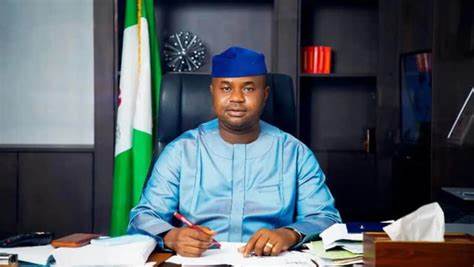The Federal Inland Revenue Service (FIRS) is targeting the generation of N5 trillion revenue from the collection of the Value Added Tax (VAT).
This is just as the European Union has expressed concern over the high level of tax evasion in Nigeria, attributing it to the absence of transparency in the tax management process.
The Head of Policy and Legislation Division in FIRS, Matthew Osanekwu disclosed the Service’s target at a press conference on the achievements of the Support Programme for Tax Transition in West Africa (PATF) in Abuja on Thursday.
Osanekwu stated that the federal government is undertaking a review of tax exemptions granted to companies operating in Nigeria.
The PATF, a programme funded by the European Union is geared at improving management of domestic taxation and ensuring better coordination in ECOWAS and West African Economic and Monetary Union (WAEMU) regions.
Speaking on the PATF programme, a tax expert and member of its steering committee, Andrew Onyeanakwe, said the project has resulted to the development of regional tax management Tools and and harmonization of the methodology for evaluating tax expenditure in ECOWAS Member States.
He said the programme has also led to the establishment of the institutional mechanism for monitoring and evaluating ECOWAS fiscal transition and the harmonisation of the laws of the member states of the ECOWAS concerning VAT.
Osanekwu stated that despite Nigeria having the lowest VAT rate in the West African region, the country has been able to improve its tax collection performance.
He, however, hinted on an ongoing discussion between the Presidential Committee on Fiscal Policy and Tax Reforms and ministry of finance on the need to review the current VAT rate.
He said: “From 2019, our VAT has increased significantly. In 2019, we collected N1.1 trillion while in 2020, we collected N1.5 trillion. In 2021, we moved to N2 trillion. It moves further in 2022 to N2.5 trillion, and I can also report that 2023 VAT collected moved to N3.6 trillion.
“Our VAT rate was initial five per cent. So, after our policies, VAT was moved to 7.5 per cent and that assisted in increasing VAT revenue. There is ongoing discussion with the Presidential Fiscal Tax Reform Committee to align with ECOWAS directive,”Osanekwu said.
The Head of Cooperation, Delegation of the European Union to Nigeria, Massimo De Luca, while expressing satisfaction on the achievements of the PATF programme, tasked government on the need to entrench transparency in managing tax revenues.
While noting that people tend to evade tax when there is no corresponding benefits from payment of tax, he said: “We are happy with this project because we got traction and it got real results. We believe that developing willing citizenry participation in the tax system and how resources are used transparently is fundamental.
“I mean, in Europe, there are countries where citizens are happy to pay up to 55 per cent of their income in taxes. We should ask ourselves why are Nigerians not happy to pay that kind of amount, and it’s all about the services you get in return and transparency of the use of the resources that we you have. There is no quick fix. In Denmark, the amount is very high and not only VAT, but also on direct taxation.”























